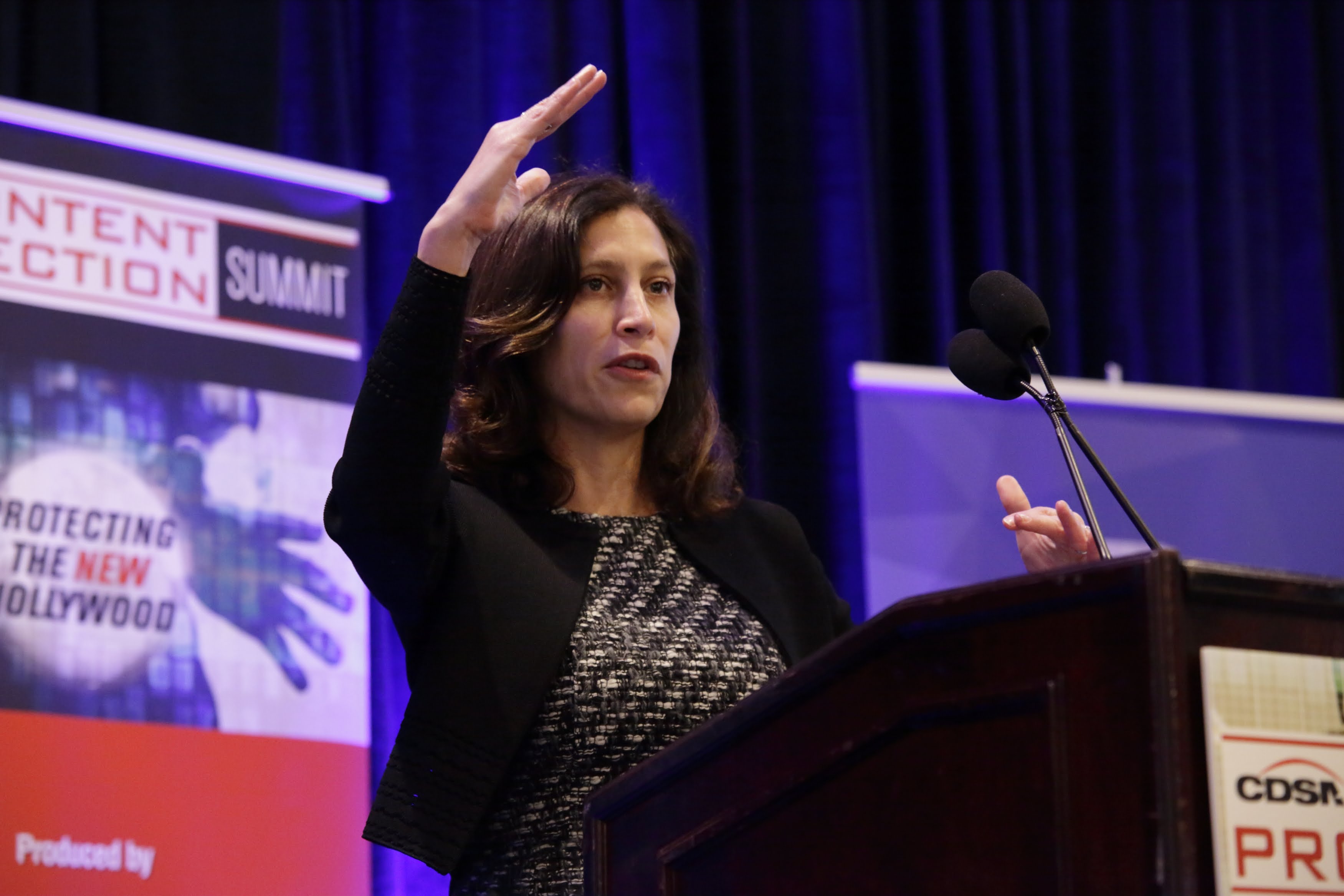HITS

Content Protection Summit Keynoter Tackles Modern Data Challenges
Story Highlights
Victoria Espinel, president and CEO of BSA The Software Alliance, sees the software industry going through more than one major transformation today, one being that software companies are also becoming data companies, and not like consumer-facing, ad-driven companies like Google or Facebook, but in terms of data storage, data management, data analytics.
“Our policy agenda has changed pretty dramatically over the last few years, as we focus more and more on data, including privacy and artificial intelligence,” she said, speaking Dec. 6 at the Content Protection Summit in Los Angeles.
Data has become such a crucial asset to the entertainment industry, with studios working with BSA member companies on using predictive analytics to make marketing and sales decisions, and the BSA working to manage the policy issues around data, like data ownership, access and privacy.
What’s changed over the last decade is the amount of data that exists in recorded form, and the ability to use it, Espinel said. She pointed to a mind-boggling statistic: Take all the data from today to the beginning of human history, and 98% of it was recorded in the last two years. “Exponential” doesn’t even begin to cover the sheer amount of data being ingested today, and that’s having an enormous impact on our society and our economy, she said.
One of the important things to keep in mind when it comes to data is that it’s at its most effectiveness when companies are able to move it around the world. “The ability to work with data that’s coming from all over the world is extremely important,” Espinel said. “Right now there’s no consensus among governments [on doing do].”
2017 has been a year of increasing distress among governments and institutions, and enormous political change, not just in the U.S., but around the world, with a rise in nationalism and nationalistic parties in both Europe and Asia. “It’s been not just the United States, in terms of being an extraordinary year of political change and unrest,” she added. And the BSA is having important policy discussions come out of those changes.
One of the issues BSA is working on is trying to set rules that advance the ability of data to move freely around the world. “To me this feels a lot like intellectual property and services in the late 1980s, when it was clear very clear to some that intellectual property was going to be a major driver of the U.S. economy, a major driver of the global economy, but there were no enforceable international rules,” Espinel said. It took the leadership of the United States and a few other countries to establish those rules. “We’re kind of at that moment now for data,” she added.
AI policy issues around the ownership of data coming from the technology, as well as the technology’s impact on jobs, are also on BSA’s agenda. And the group is also helping its member companies better understand internal concerns, like the cybersecurity risk that comes from not understanding what you have on your network.
The group did a survey that asked CTOs and CIOs within companies that saw them estimate that about 20% of their employees had put something on their network without them knowing, and that’s a high enough number to cause concern. But they also asked the employees the same question: about 50% said they were putting things on their company networks without their CTO’s or CIO’s knowledge.
“There’s a very significant gap there, between what CIOs think is happening inside their companies, and what is actually happening, and that causes licensing issues, and big cybersecurity issues,” Espinel said.
The Content Protection Summit was produced by MESA and CDSA, presented by MediaSilo, and sponsored by Independent Security Evaluators, Aspera, the Digital Watermarking Alliance, Menlo Security, Microsoft Azure, NAGRA, NexGuard, Convergent Risks, HGST, PwC, Thinklogical, Avid, Militus Cybersecurity Solutions, Amazon Web Services and Bob Gold & Associates.









